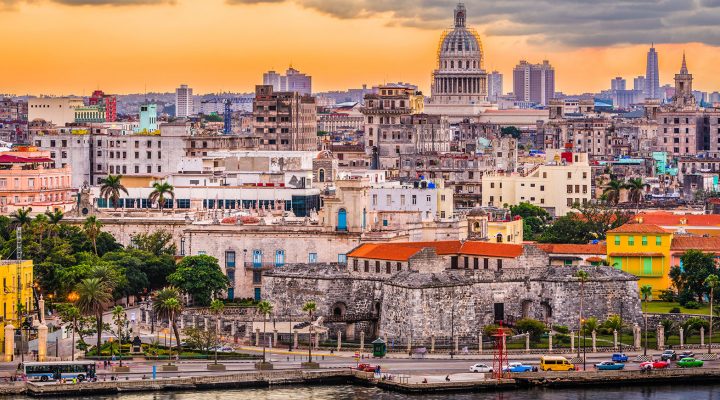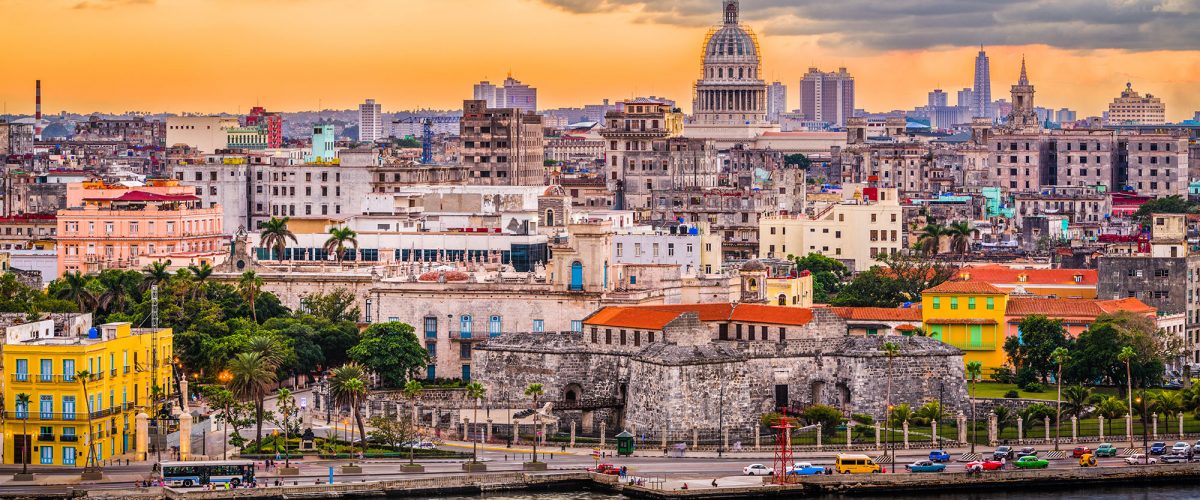Pressure is mounting on President Joe Biden to remove Cuba from the U.S. State Department’s list of state sponsors of terrorism, a designation the island nation received in the final week of the Trump administration.
Among the latest to speak out is a group of 160 lawyers with the Alliance for Cuba Engagement and Respect who sent a letter to Biden in January arguing Cuba was placed on the list of terror-sponsoring countries for political rather than national security reasons.
“Nearly half-way into your presidency and there has been no outward gesture or recognition that Cuba’s placement on this list was ever merited, especially considering that it had been removed just a few years prior by the Obama-Biden administration. There is no legal or moral justification for Cuba to remain on the State Sponsors of Terrorism list,” the attorneys said.
In fall 2022, 18 former Caribbean and Latin American leaders sent a letter to Biden requesting an end to the 60-year embargo of Cuba in the wake of Hurricane Ian. The Associated Press reported Nov. 1 that letter also asked the administration to remove Cuba from the list of state sponsors of terrorism.
“People who defend it know it is a political calculation. It keeps a certain part of the voting public in Florida happy, and it doesn’t cost anything.”
To receive that designation, nations must “have repeatedly provided support for acts of international terrorism,” according to the State Department’s Bureau of Counterterrorism. “Currently there are four countries designated under these authorities: Cuba, the Democratic People’s Republic of Korea (North Korea), Iran, and Syria.”
The department’s Jan. 11, 2021, announcement that Cuba was being returned to the list admonished Cuba for refusing to participate in U.S. anti-terrorism efforts, for harboring American fugitives and for granting safety to guerilla leaders preparing for peace talks with U.S. ally Colombia. The Trump administration also claimed Cuban intelligence agents had infiltrated Venezuelan military and security organizations.
“The United States will continue to support the Cuban people in their desire for a democratic government and respect for human rights, including freedom of religion, expression and association. Until these rights and freedoms are respected, we will continue to hold the regime accountable,” the State Department said in early 2021, just days before the end of the Trump administration.
In their letter to the administration, the attorneys with the alliance countered that many of the actions cited for placing Cuba on the terrorism list are acceptable under international law. For example, its refusal to extradite guerilla leaders stemmed from that group’s preparations to enter negotiations with Colombia.
“Cuba cited its clear obligation as a guarantor country for peace negotiations that they had an obligation to guarantee the well-being and safety of those who participated in the negotiations, and extradition both violated that obligation and also compromised the possibility of future peace talks,” the letter said. “In addition, the Colombian constitution prohibits extradition for political crimes, which was reflected in the extradition treaty between Colombia and Cuba.”
In addition, Colombia also has requested that Cuba be removed from the list of state sponsors of terrorism, the letter states.
Claims by Mike Pompeo, secretary of state under Trump, that Cuba harbors American fugitives was a reference to violent acts that occurred half a century ago, the attorneys said. “In order to meet the statutory definition laid out by the three federal statutes that establish a country’s designation as a state sponsor of terror, an act must both meet the definition of ‘terrorism’ and be international in character. Cuba meets neither of these.”
The attorneys added that “this point of concern was raised and resolved by the Obama administration when Cuba was removed from the SSOT list. Even in the absence of that possibility, international law clearly prohibits extradition for acts of political violence.”
Returning Cuba to the list was a calculated political act and is under State Department review, the letter added.
“A review of policy practice by the United States also reveals that failure to extradite a U.S. citizen wanted to face criminal charges has not been used as justification for placing a country on the SSOT list, aside from Cuba. Policy — and electoral — concerns are what appear to have always kept Cuba on the SSOT list, rather than actually meeting the legal requirements to be on there. As former special advisor on Cuba affairs to President Clinton, Richard Nuccio, noted, ‘Frankly, I don’t know anyone in or outside of government who believes in private that Cuba belongs on the terrorist list. People who defend it know it is a political calculation. It keeps a certain part of the voting public in Florida happy, and it doesn’t cost anything.’”
“Maintaining it for such pretextual reasons continues to be a stain on U.S. foreign policy.”
In some ways, Cuba hasn’t fared much better since Biden took office. In 2022, the State Department added Cuba to its list of Countries of Particular Concern, a designation for nations that have engaged in particularly severe religious freedom violations. With that designation Cuba joined Burma, China, Eritrea, Iran, North Korea, Nicaragua, Pakistan, Russia, Saudi Arabia, Tajikistan and Turkmenistan.
Refugees and asylum seekers from Cuba also have been on the administration’s radar in recent months. Along with immigrants from Haiti, Nicaragua and Venezuela, increased numbers of qualified Cubans fleeing their homeland have been granted access to temporary humanitarian parole to enter the U.S. But the administration also has targeted others among them for rapid expulsions to Mexico under Title 42.
In their letter to the president, the alliance attorneys say Cuba’s designation as a state sponsor of terrorism only adds to the suffering of its citizens.
“Given the tremendous economic, social, humanitarian and commercial effect placement on the SSOT list has had for the Cuban people, maintaining it for such pretextual reasons continues to be a stain on U.S. foreign policy. We respectfully urge the administration to immediately initiate a review and notification process to remove Cuba from the SSOT list.”
Several Baptist groups in the United States have active ministries with the people of Cuba.
Related articles:
Cuban government clamps down more on religion
How to read the Cuban street protests in light of U.S.-Cuba history | Analysis by Ken Sehested
Understanding Cuba and the United States through July 11 and Jan. 6 | Opinion by Stan Dotson


